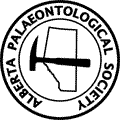Frequently Asked Questions
How does a person become a palaeontologist?
Not many universities offer 4-year undergraduate degrees in palaeontology. The ones that do are mostly in the USA, such as UC Berkeley (California). The usual route to becoming a palaeontologist is to begin with getting a Bachelor's degree in one of two fields of science: geology or biology. Which one you choose will very much depend on your interests. Even after choosing say the geology path, it is still a good idea to also take courses in the biology field, especially zoology and anatomy.
Each school has different course requirements for a degree program. You will likely have to take courses in math, physics, chemistry as well as options from other faculties (English, foreign languages, social sciences, history, arts, etc.) as a requirement for completing your degree. These latter courses may seem like a waste of time, but they are requirements for getting a degree, and you will have to take them. A course in English and creative writing is important too because to be a good palaeontologist, you will have to be able to write papers and you MUST be able to communicate properly. Mathematics is important because study of fossils often includes statistical analysis.
If you're still in high school, make sure you take biology, physics, chemistry and math before you graduate from grade 12. If you're missing any of these you will run into roadblocks in university. Once you have your 4-year degree in geology or biology, then you will be able to specialize in palaeontology in a Master's program (usually another 2 years), and continue with a PhD program (another 2 to 5 years--some very bright people skip the Master's degree and go straight to the PhD). You will find that you need a PhD in order to teach or do research in palaeontology. The best way to find out which specific courses you need is to talk to the people in the departments you are interested in. If you want to go to U of A, go to the department of Earth and Atmospheric Sciences (geology), or Biological Sciences, and ask to talk to someone (a counsellor or one of the professors) about course requirements for a career in palaeontology. They will ask you the right questions and give you the best information. Same for any other university (such as U of Calgary) you might be interested in attending. (Yes, you can get a palaeontology degree at U of C — there are several graduate students studying dinosaurs there right now.)
I'm not a member, can I attend a field trip?
You have to be a member to attend field trips. By joining the society you will be entitled to enjoy all the other benefits of membership too. To join the society visit the members section of the website. If you plan to join the society, join several weeks before the field trip rather then on the day of the field trip. The field trip coordinator is busy organizing the trip and does not handle memberships at the site.
Where can I park to attend one of your meetings?
Visit the Monthly Meetings tab on this website. Once in that section of the website, scroll to the bottom where you will find a map of Mount Royal University in Calgary including the parking areas. The University does charge a small fee for parking.
A map of the parking areas can also be found on the last page of the Members' Guide.
Can I sign books out of the APS library?
Yes, any member may sign out a book from the APS library. Speak with the APS librarian at the monthly meeting.
I've found a fossil I'd like to have identified. Who should I contact?
Refer to the Members’ Guide tab on this website. The Members’ Guide includes a section on this topic and provides recommendations.
I'm planning to visit Alberta next summer; what are the regulations about fossil collecting?
Refer to the Members’ Guide tab on this website. The Members’ Guide includes a section on the regulations about fossil collecting.


